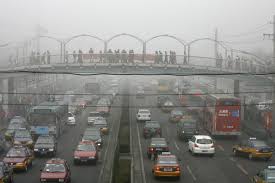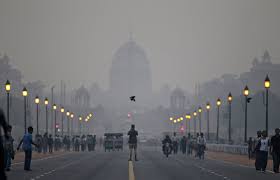
The quality of air we breathe has dramatically dwindled in the past century. While air pollution has always been there since humans began to inhabit the Earth, the change in this generation is unprecedented and has reach quite alarming levels.
Air quality is primarily affected by economic activities, which in turn introduce pollutants to the atmosphere. These pollutants become tangible threats to the health of humans, animals, and basically every type of living thing on this Earth.
We have known for hundreds of years how air pollution affects our health. But one development, caused primarily by the worsening of the situation, is the fact that it also has changed the climate. And the effects are seen on the global scale. And since large bodies of air are impossible to contain, the only way to control air pollution is to go down to its source.
Majority of air pollution is man-made. It is usually derived from the poor burning and combustion of fossil and biomass fuels. In the most polluted cities in the world, the traditional suspects are exhaust fumes coming from vehicles, as well as those coming from furnaces and wood stoves.
The Worst in the World
Beijing has been holding on to the title for many consecutive years now. Part of being a “champion” city for air pollution is the fact that it is also one of the most populous cities in the world, along with the government’s lack of concern in addressing the problem. But Beijing is currently being challenged by another city, New Delhi, India’s capital.

New Delhi is now considered as the world’s most polluted major city. India’s own Center for Science and Environment (CSE) released data stating that the air pollution in New Delhi for the winter time is actually sixty times higher compared to the level considered as safe for people.
That’s quite an alarming fact that will certainly raise eyebrows from environmental groups. But there’s still no certainty if the government even reacts to it. Just think about it: we’ve been visibly disturbed by air pollution in Beijing not knowing that New Delhi is even worst!
In layman’s terms, it’s hard to interpret the figures. But to make it simple, here’s a short breakdown:
PM2.5 refers to the diameter measured in microns of bad stuff in the air like carbon, nitrates, sulfate, and ammonia. These are particulates that are small enough to enter the bloodstream and lead to cancer and other illnesses.
London for instance has an average PM2.5 level of 20 micrograms. This is a safe number. How about Beijing and New Delhi? The former has a concentration level of 400 micrograms while the latter has an average of 575 micrograms. So how do you breathe in these cities and be confident about it?
They say that both India and China are sleeping giants and they are rapidly becoming the two biggest economies in the world. But to think of this development at the expense of the quality of air is simply dumbfounded and outrageously inhumane.
Protecting Yourself
The most disturbing thing about air pollution and its effects is that no one is spared. It is like a disease that enters the body and knows no bounds.
Unfortunately, if you are living in Beijing or New Delhi, there is not much you can do to protect yourself. The levels of air pollution in these areas call for government intervention, not just personal protection.
In the United States and other countries with average levels of air pollution, it is best to embrace a routine that will keep you from inhaling air pollutants. So how do you do that?
1. First, keep in mind that air pollution is at its highest level when the temperature is warm. Therefore, it is best to carry out outdoor activities early in the morning or late in the evening.
2. Likewise, avoid the busy streets as much as you can. The more vehicles you see in traffic, the more pollutants you get from the burning fuel of the engines. If it happens that you are stuck in an area where there is pollution, put in the extra effort to use a handkerchief to cover your mouth and nose. This is to filter smoke and gas and prevent them from entering your lungs.
3. Finally, it is strongly advised that you embrace a diet of antioxidant-rich foods including vegetables and fruits. They help you by shielding the body from the effects of free radicals produced by air pollution.
Recommended Articles:
Interesting Facts about Air Pollution






